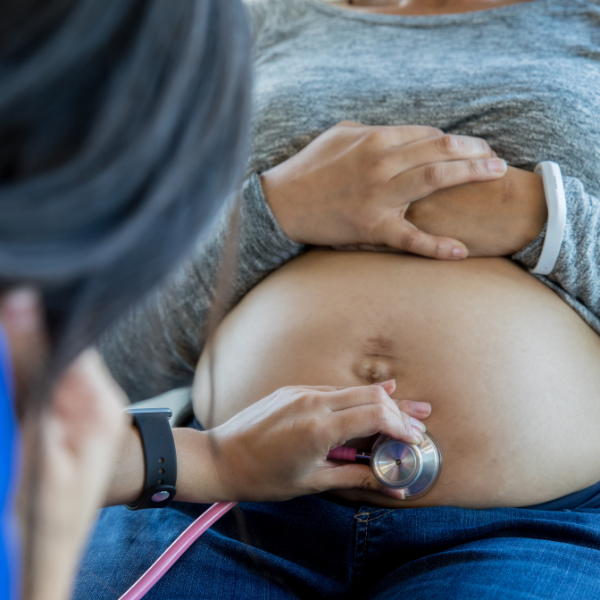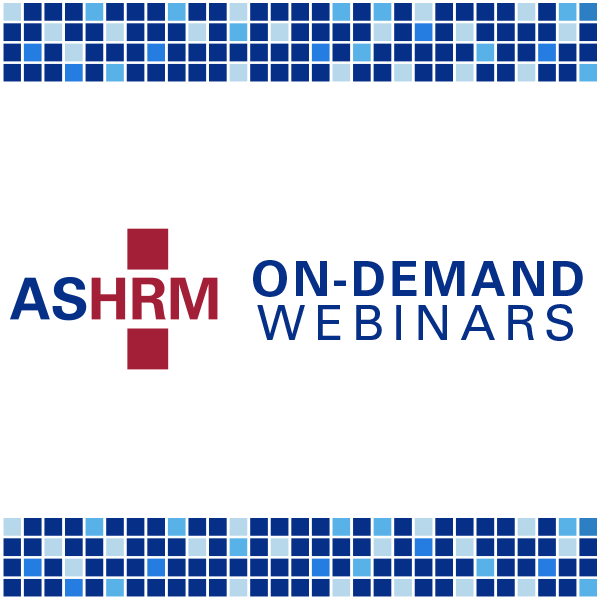How to Improve Obstetric Outcomes through a Proactive Quality and Safety Approach
Member: $39.00
ASHRM CE Credit: 1
This webinar will review the current state of maternal morbidity and mortality in the U.S., discuss primary drivers of obstetric risk, and outline how risk management professionals can engage with and support perinatal teams in creating safer systems of care and thus improve outcomes in the birthing people they serve.
Recent CDC data revealed that maternal mortality is increasing and stark disparities in outcomes exist. For every maternal death, thousands more suffer severe morbidity. Severe maternal and neonatal events are devasting to patients, their families and the teams providing their care. These events are also extremely costly and are a leading source of claims and indemnity payments. Severe maternal events are near misses and should provide an opportunity to improve. Unfortunately, many hospitals take a reactive approach to perinatal quality and safety only assessing for needed improvements after a serious event occurs. This reactive approach to perinatal quality is often forged due to:
1. A lack of access to data on perinatal process and outcome measures.
2. The financial incentives associated with other quality indicators which drive prioritization and resource allocation to other specialties.
3. Lack of a quality structure within perinatal services which promotes awareness of, engagement with, and accountability for perinatal outcomes.
This webinar will review the current state of maternal morbidity and mortality in the U.S., discuss primary drivers of obstetric risk, and outline how risk management professionals can engage with and support perinatal teams in creating safer systems of care and thus improve outcomes in the birthing people they serve.
Learning Objectives
- • Discuss current data on maternal morbidity and mortality in the U.S.
- • Describe primary drivers of risk in the specialty of obstetrics.
- • Outline the key components of a proactive perinatal quality and safety structure aimed at improving maternal and neonatal outcomes at your hospital.
- • Identify ways risk management professionals can engage with perinatal teams to improve the perinatal care provided in your hospitals and health systems.
| Product Code | 322017OD23 |
| ASHRM CE Credits | 1 |
| CNE Credits | 1 |
| Domain | Clinical Patient Safety |
| Level - Foundational (F), Practitioner (P), Advanced (A) | F |
| Publication Date | 7/10/23 |
| Next Review | 7/01/24 |
| Credit Expires | 7/01/25 |
For questions regarding this webinar, contact ASHRMEd@aha.org
Speaker Bio
Adriane Burgess PhD, RNC-OB, CCE, C-ONQS, CPHQ is a nurse with over 25 years’ experience in perinatal nursing. She earned her PhD in 2017 and actively publishes and presents on innovative maternal quality improvement programs several of which she has earned national awards. She holds certifications in inpatient obstetrics, childbirth education, obstetric and neonatal quality, and safety and in health care quality. She recently earned the designation of fellow in the association of women’s health obstetric and neonatal nursing. In addition to consulting with hospitals and health systems to help support improvement in perinatal and neonatal quality and safety, she also serves as the Director of Perinatal and Neonatal Quality and Patient Safety at the Maryland Patient Safety Center.
Julia Wheeling BSN, MBA, RNC-EFM, C-ONQS is a perinatal nurse with over 26 years of experience providing women's health care in a variety of settings. She holds certifications in Obstetric and Neonatal Quality and Safety and in Electronic Fetal Monitoring. In 2017 Julia earned her Master of Business Administration in Healthcare Management. Currently, Julia serves as the Program Director for obstetrics for a large health system in south central Pennsylvania where she guides best practice at their five birthing hospitals. Julia is an active member of the Association of Women’s Health Obstetric and Neonatal Nurses. Julia is co-founder of Perinatal Quality Consultants.


